By Miva | May 3, 2023

See why top ecommerce brands use Miva’s no-code platform to run
multiple stores, manage massive catalogs, and grow their revenue.
B2B’s massive role in the ecommerce landscape continues to grow, with a majority of all B2B businesses (65% and growing) now offering their products online. As more B2B businesses race to digitize their catalogs and open direct sales channels, navigating the increasingly competitive world of online wholesale will require an effective strategy that adheres to B2B ecommerce best practices. To help your business stand out from the pack with a sustainable foundation for real growth, we’ve compiled a comprehensive list of B2B best practices, covering everything from site design to personalization and customer insights. By considering these guidelines, you can hone your sales strategy and ensure that your customers receive a first-rate experience which keeps them coming back for more.
Your website is the core of your online business strategy and is the stage upon which your entire business model is presented to future buyers. Nothing is more essential for B2B ecommerce success than creating an attractive, user-friendly, and user-relevant website. The first B2B ecommerce best practice is to ensure that your website has a clean, organized layout and navigation which offers a streamlined categories and highly specialized sub-categories. The goal is always to make it easy for customers to find the information and products they need without a confusing pathway of extra clicks. Site speed and page loading times are a huge part of successful navigation and are also an unsung conversion driver. No matter what kind of device or location a buyer shops from, a fast, responsive design is crucial for an optimal user experience.
Digitizing the product catalog in a way which streamlines catalog navigation is another vital aspect of B2B ecommerce website development—we wrote extensively about it here. Advanced search functionality such as faceted searching can help customers sift through your catalog to find products quickly and efficiently. When they arrive at the products they are looking for, supply your buyers with a host of comprehensive product information to answer all of their questions in advance, such as high-quality images, videos, technical specifications, user guides, and FAQs to support informed purchasing decisions.
B2B ecommerce development must adroitly address the specific requirements, preferences, and techniques that are unique to an industry, product type, or customer. For wholesale purchasers, this might include variable pricing, bulk discounts, and customized ordering methods/forms. While these types of account and industry-driven features may seem to add complexity, they actually make the buying process more simplified and relevant for shoppers and are worth having, leading to more sales.

Reduce drag on your customer service resources and make your sales team’s time more effective by employing “self-serve” account tools whenever possible. Equip your customers with the ability to manage their own accounts, view order history, and track shipments 24/7. This boosts customer satisfaction and reduces the workload of your reps. Those reps also need easy data tools for managing their efforts—a CRM system can integrate with your ecommerce platform to provide real-time customer data and insights, enabling sales teams to offer personalized support and sell more effectively.
The more relevant your shopping experience is to your buyers, the easier it will be for them to find what they are looking for and make a purchase. Tailoring elements of your site to each customer is a strong best practice for B2B sites. Collect and analyze customer data to understand your buyers’ preferences, behaviors, and pain points. There are many ways to use this information to optimize your marketing strategies, improve customer service, and identify new sales opportunities. Offer personalized experiences based on customer profiles, browsing history, and purchase history to enhance customer satisfaction and increase conversions.
Optimizing your B2B ecommerce website for mobile devices is an essential best practice. B2B shoppers may be making purchasing decisions from a variety of locations (and devices), so ensure that your website meets them on-the-go. Prioritizing fast loading times is the first step for making an effective responsive website, Then, create a cohesive ecosystem by connecting your ecommerce platform with other business tools, such as ERP, CRM, and marketing automation systems. This kind of integration streamlines processes, improves data accuracy, and enhances overall business efficiency. Read more about the value of ecommerce integrations here.
A central tenet of selling to businesses is understanding that purchasers are buying on behalf of other businesses. That likely means they will have many company-oriented hoops to jump through which you can help them navigate, such as purchase approvals, centralized billing, and multi-user accounts. In a larger sense, your buyer represents the needs and preferences of a larger organization. Site design, buying processes, messaging, and offers should be positioned with this in mind—how can you tailor your ecommerce site to solve for the pain points of other businesses, as well as individual buyers?
These B2B ecommerce best practices are a great starting point which will enable you to create a seamless experience for your customers, streamline your business processes, and set the perfect conditions for more sales. Prioritize a fast, user-friendly B2B ecommerce website design, simplify catalog navigation, offer rich product content, and leverage customer insights to optimize your ecommerce strategy. With these fundamental components in place, you'll be well on your way to outstanding B2B ecommerce and lasting success.

Elisa Williams is a journalist and communications strategist who combines storytelling with solid research and analysis. A contributing author to the Miva Blog, Elisa has written for a wide array of consumer, business and technology publications, including Newsweek, Real Simple, Computer Life and Inc. Her marketing and content development work includes supporting technology companies that specialize in ecommerce, financial services and big data.
Love it? Share it!
No worries, download the PDF version now and enjoy your reading later...
Download PDF Miva
Miva
Miva offers a flexible and adaptable ecommerce platform that evolves with businesses and allows them to drive sales, maximize average order value, cut overhead costs, and increase revenue. Miva has been helping businesses realize their ecommerce potential for over 20 years and empowering retail, wholesale, and direct-to-consumer sellers across all industries to transform their business through ecommerce.
Visit Website